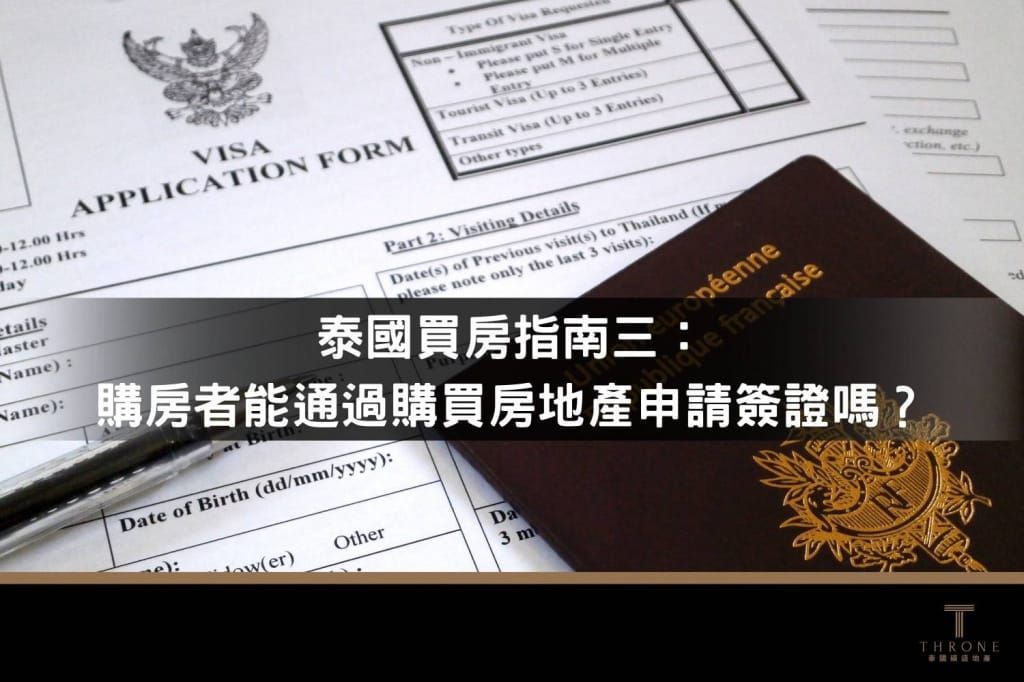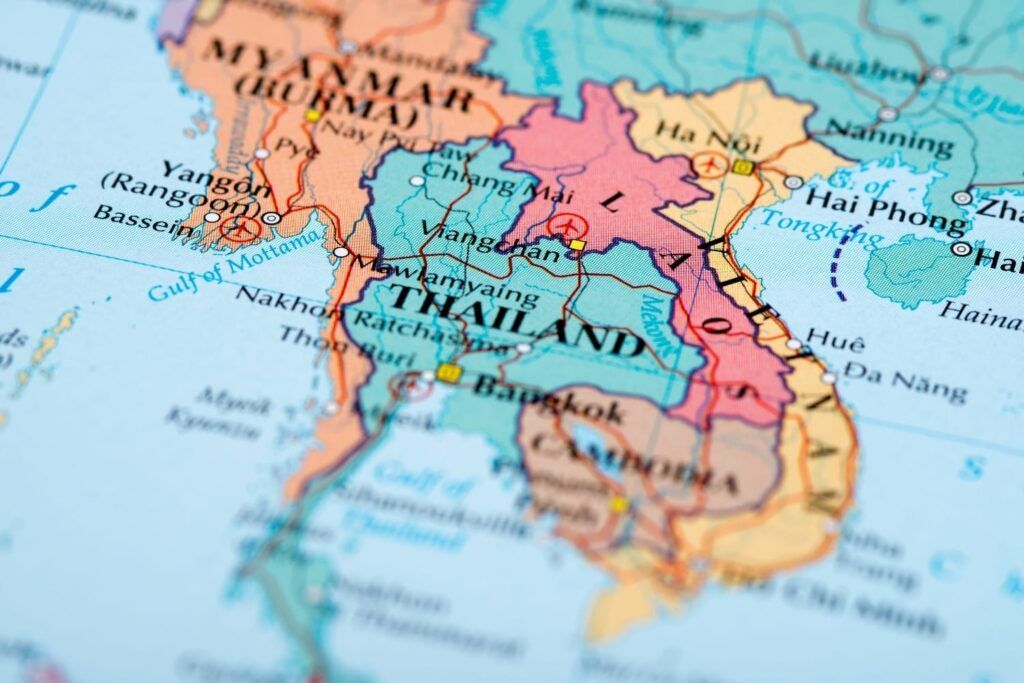Property Management News, Knowledge, Current Affairs, and Videos
Thailand Property Buying Guide: 4 Key Points to Know Before Purchasing a Property in Thailand
Thailand Home Buying Guide 1: Can foreigners own real estate in Thailand?

Buying property in Thailand is feasible for foreigners. Foreigners can hold permanent ownership of condominium buildings, with the limit being 49% of the total number of units in the project. Additionally, there are no age restrictions set by Thai property laws regarding the ownership of real estate. It is important to confirm the percentage of foreign ownership in the project before making a purchase decision.
For foreigners wishing to buy property in Thailand, purchasing condominium projects with permanent ownership is always the best investment option. According to the Condominium Act established in 1979, foreigners can hold absolute permanent ownership of condominium projects and co-ownership of communal properties.
Leasehold is another option for property ownership. Whether renting a condominium or leasing land for building a house, registration of leasehold rights must be applied for at the land office of the respective zoning area. During the lease period, one can own the buildings or improvements on the land. However, Thai law stipulates that lease contracts must have a minimum duration of three years but cannot exceed thirty years, and upon expiration, both parties must renew the lease for no more than thirty years. Even if the landowner sells the property to a third party, the lease contract will also be transferred.
Foreigners can register a company in Thailand to purchase land or real estate in the company’s name. If the company buys an already completed project, the full purchase price must be paid. If the project is still under construction, a deposit of 25-30% of the purchase price must be paid upfront, with the remaining 70-75% due upon project completion.
Due to the Thai government's need to monitor the flow of funds, purchasing real estate in Thailand must be done with internationally circulating currencies, and payments should be made via wire transfer to the seller's bank account. Additionally, the buyer must provide the bank-issued remittance slip and foreign exchange transaction proof to maintain legal transaction records. Cash payments are not permitted, and without the aforementioned bank documentation, ownership cannot be officially transferred to the buyer.
If a foreigner passes away while holding real estate in Thailand, the heirs must appoint a lawyer to prepare the inheritance documentation, and they must pay fees as required by the land office. Moreover, if the total value of the property exceeds 100 million Thai Baht, the heirs will be liable for inheritance tax.
Thailand Property Buying Guide Part 2: Do buyers need the assistance of a broker or a lawyer when purchasing real estate in Thailand? Or do they need both?

Buying property in Thailand is typically assisted by real estate agents, and there is no legal requirement to hire a lawyer. Generally, the agent drafts a sale agreement that includes all negotiated details signed by both parties. In addition to having a better understanding of the local market, using an agent can help ensure the buyer's interests are protected through trusted representation. Given that the legal terminology and clauses can be quite complex, working with an agent can ensure a smooth transaction and secure the best interests of buyers looking to purchase property in Thailand.
Thailand Home Buying Guide Three: Can buyers of property in Thailand apply for a visa by purchasing real estate in Thailand?

Pension visa
Many foreigners choose to retire in Thailand, and applying for a retirement visa has become an excellent option. To apply for a retirement visa, one must be at least fifty years old and must not have violated any relevant Thai laws. Additionally, the applicant must have previously held a non-immigrant visa in Thailand. This visa prohibits the holder from working and receiving a salary in Thailand. Moreover, the retirement visa must be renewed annually, and during the renewal process, proof of a monthly income of no less than 65,000 Thai Baht must be presented; or a bank account balance of at least 800,000 Thai Baht over the past three months; or a total of bank deposits and annual income combined of no less than 800,000 Thai Baht within a year.
Investment visa
Applying for an investment visa is another option. It can be requested when purchasing an apartment valued at no less than 10 million Thai Baht and having previously held a Thai non-immigrant visa. This visa is valid for one year and needs to be renewed annually.
Thailand Elite Privilege Visa
If you are unable to apply for a retirement or investment visa, you may consider applying for the Thailand Elite Visa. Members holding the Elite Visa can enjoy a special visa for multiple entries into Thailand and visa extension services, as well as receive VIP treatment during each entry and exit from Thailand.
Thailand Home Buying Guide 4: What are the associated costs of purchasing a property?

Thailand property purchase rental rights: Rental registration fee
For short-term contracts with a lease period not exceeding three years, the law does not mandate registration. However, if the lease period exceeds three years, it must be registered with the land office to ensure that the court allows enforcement. Currently, the registration fee for leases is 1.1% of the total rent for the rental period, which is usually shared between the lessor and lessee.
Purchasing property in Thailand with freehold ownership: Transfer of ownership fees
The property transfer fee is calculated at 2% of the government-assessed value. The buyer is the party responsible for paying the property transfer fee, but it can be paid by either the buyer or the seller, depending on the agreement between the two parties. The property transfer fee must be paid to the land office once the ownership transfer registration is completed.
The paragraph translates to: "Article source: Thailand Shuosheng Real Estate Network."










